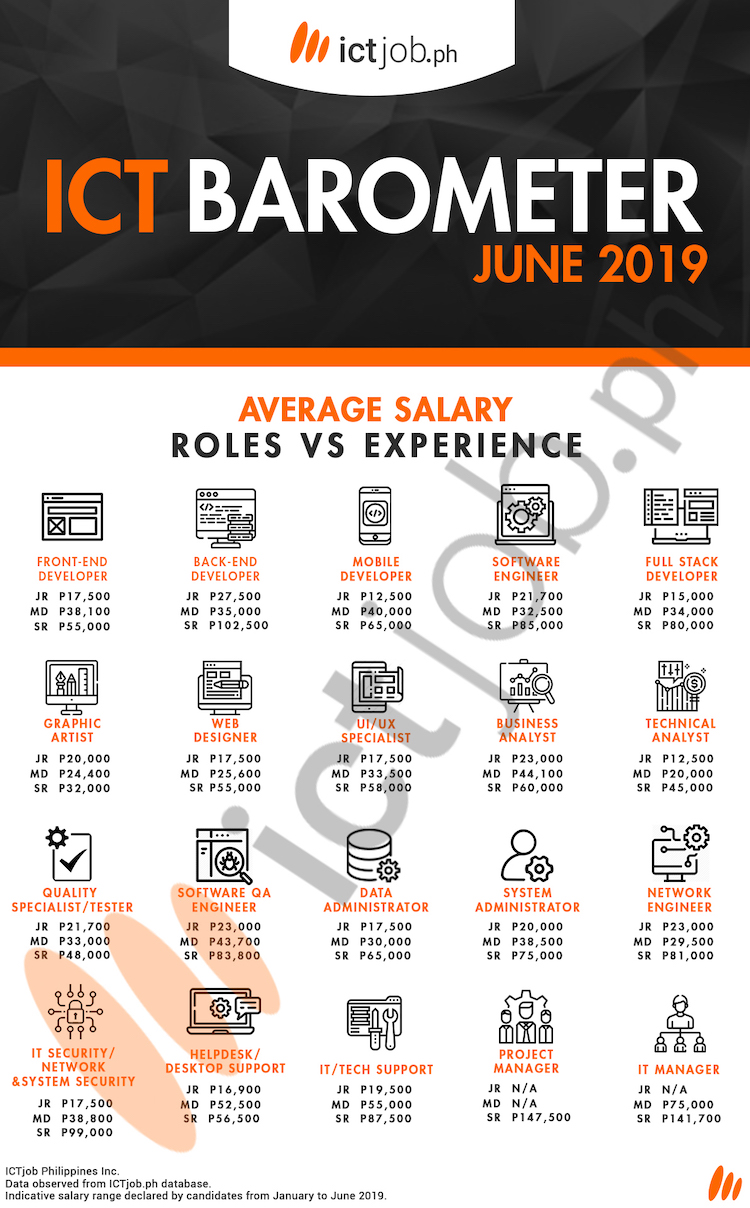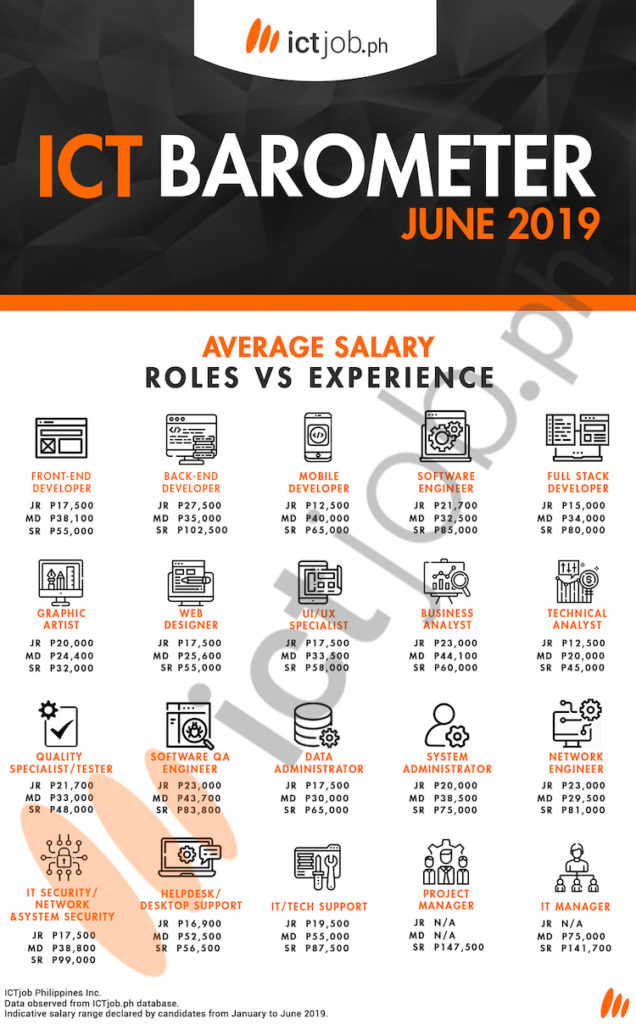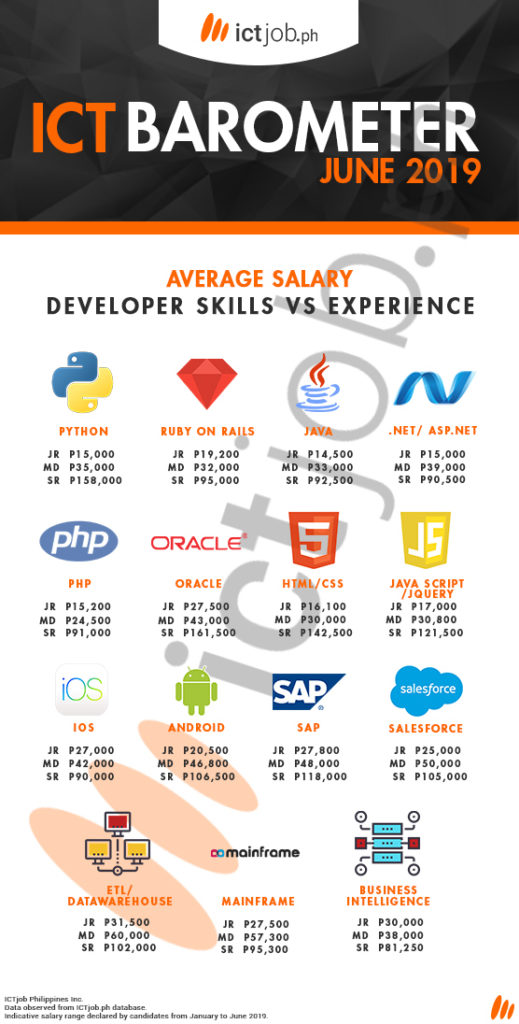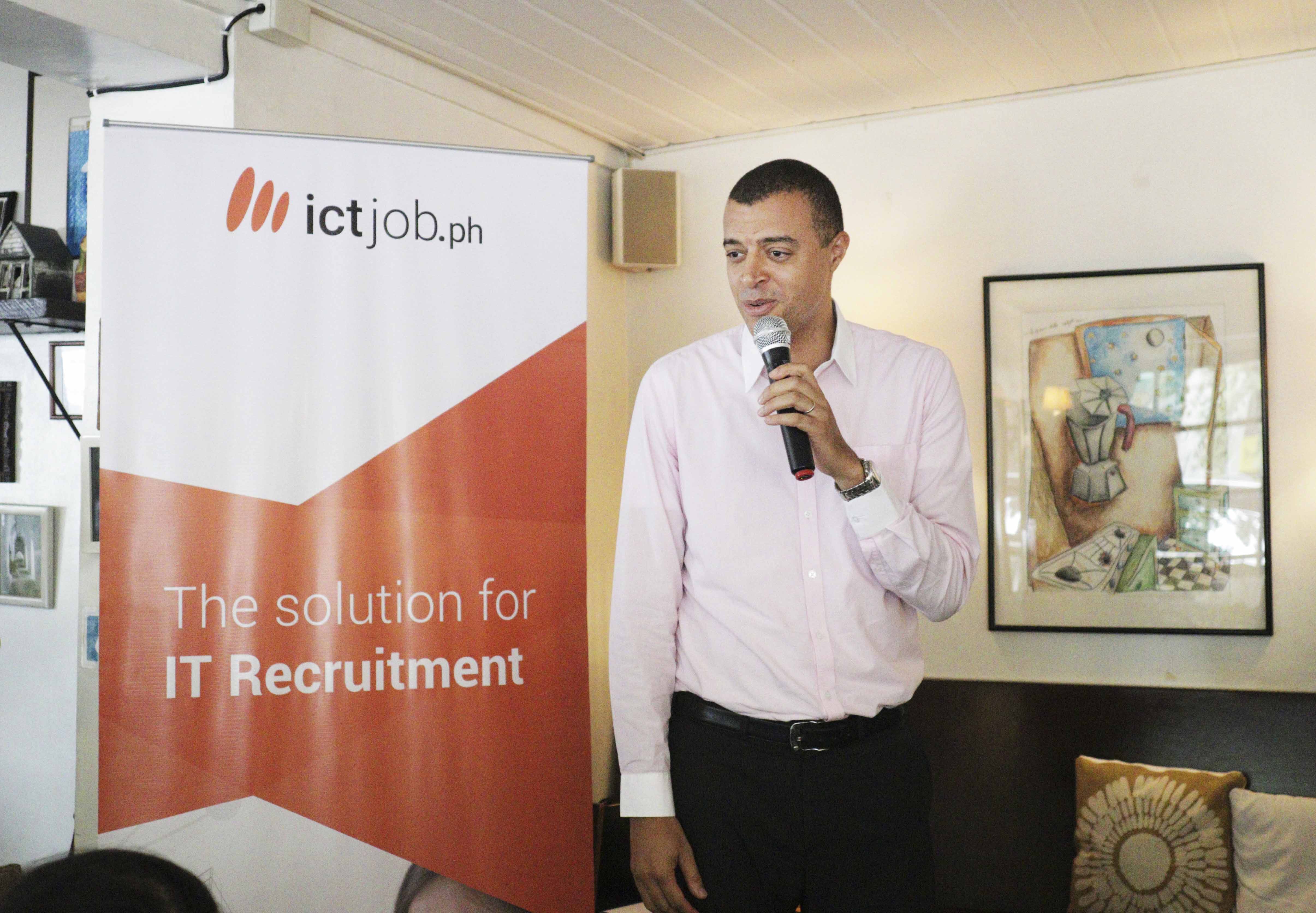ICTjob.ph, a Philippine Premier IT job portal, has released its IT salary barometer for the first half of 2019.
The ICT Barometer 2019 provides data on estimate gross monthly salaries of different IT professions based on the corresponding role, specialization, skill, and level of expertise. It is based on data gathered from ICTjob.ph’s clients and their requirements versus the IT talent’s asking salary and skills from January to June 2019.
Unlike the ICT Barometer 2018 that featured only seven major job categories, this year’s ICT Barometer covers more specific roles with 20 additional titles for a more accurate and timelier estimate. Last year’s Programmer/Developer category, for example, has been expanded to include Front-End, Back-End and Mobile Developers to reflect more correctly the difference in salary and demand. More titles such as Software Engineer, Full Stack Developer and design roles such as Graphic Artist, Web Designer, and UI/UX Specialist have been added to the ICT Barometer 2019 as well.
Fred Tshidimba, founder and chief innovation officer of ICTjob.ph, said; “Based on our study, the more complex and in-demand the skill, the higher the base salary one can expect from employers even if one has just started working for the ICT industry. We also realized that some roles like DevOps and business analysts were highly searched by the market. It’s time for job seekers to upskill.”
In-demand roles
The ICT sector remains one of the fastest-growing industries in the country. As such, it has a strong demand for manpower with specific skills and experience. It is this stringent requirement for complex and very different skill sets that contributes to the talent gap, a hot topic, and concern for ICT companies in the Philippines.
“There are only a few IT professionals in the talent pool who are knowledgeable in programming Python versus other software such as Java and PHP. But this does not mean that Java professionals are easier to hire. What it means is that there is more Java/PHP-equipped talent compared to those who are experienced in Python,” Tshidimba added.
The study by ICTjob.ph shows, for instance, a noticeable 85.63 percent increase in the salary of senior-level Oracle developers from Php87,000 in 2018 to Php161,500 at present. With a strong demand for information on the net, HTML/CSS Developers also experienced a 71.69 percent increase in their salaries. Android Developers, both mid- and senior levels, had a 21.56 percent and 50 percent salary increase, respectively, on the back of rapid advancements in mobile software technologies.
Increasing competitiveness
ICTjob.ph notes the emphasis today is on data knowledge and application and soft skills such as project management and communication. When it comes to reviewing the salary package and planning the career development of the IT talent pool, a good combination of software and management skills is a huge advantage.
“When it comes to working for big ICT companies, the years of experience and skills are important. But knowing how to communicate and project management is an advantage. This is why project and IT managers and other managerial and operational work get significantly higher pay. Meanwhile, those who work freelance teleworking need to compete more on skill and specialty. They consistently need to be updated on the latest trends and acquire skills on their own to gain a competitive advantage among other IT professions,” Tshidimba said.
ICTjob.ph underscores the importance of upskilling in light of the increasing value given to the skill set in the ICT workplace rather than just years of service. Tshidimba adds that IT practitioners and graduates should take advantage of their access to learning materials and resources online or check on short courses from academic institutions to improve their skills. Soft skills should also be in mind in terms of learning as these give job seekers additional advantage.
The ICT Barometer is updated each semester to reflect developments and trends in the industry. With the Philippines being one of the leading business process outsourcing (BPO) and software development service providers in Southeast Asia and the government’s efforts to resolve the ICT skills gap, the job searching site expects to see more Filipinos joining the ICT industry in the coming years.












































































































